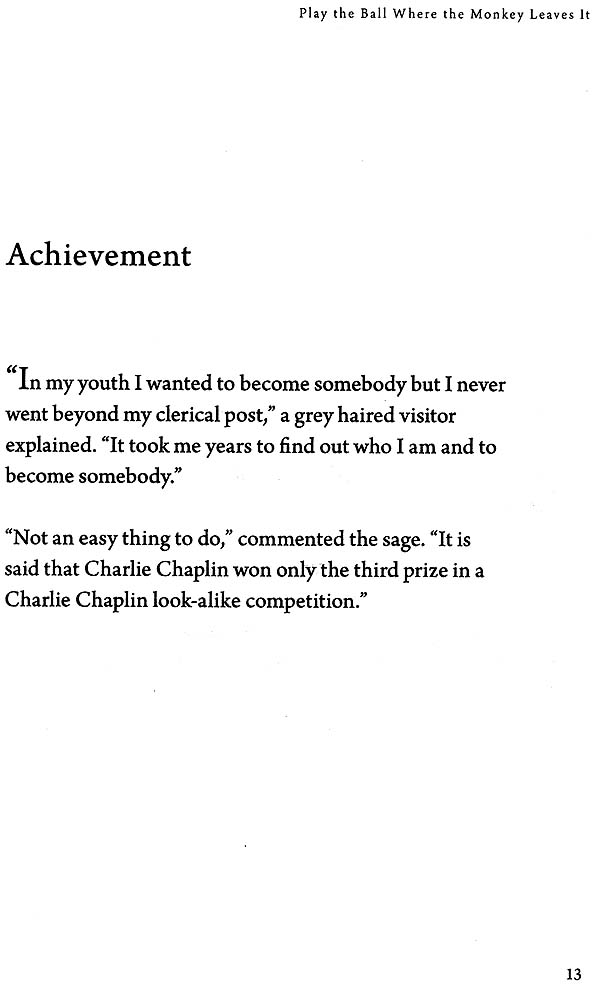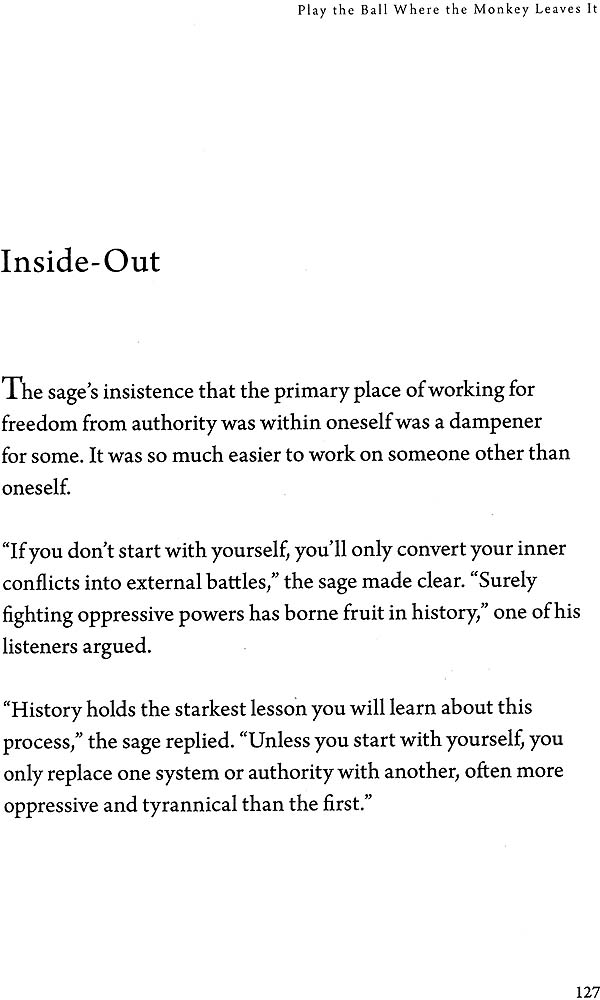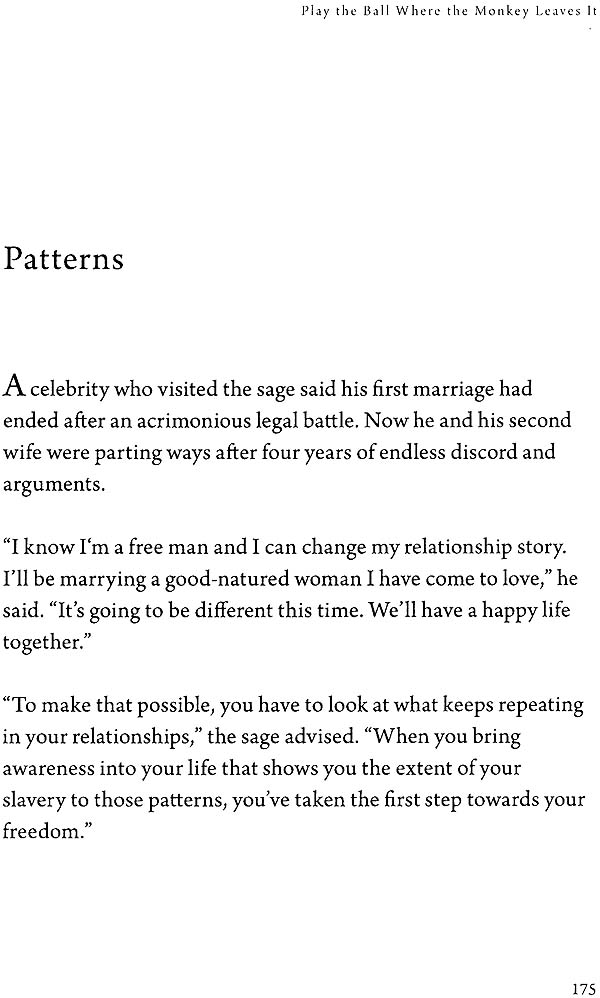
Play the Ball Where the Monkey Leaves it (Mindfulness Stories for Daily Living)
Book Specification
| Item Code: | NAM197 |
| Author: | Francis Valloor |
| Publisher: | Zen Publications |
| Language: | English |
| Edition: | 2016 |
| ISBN: | 9789385902185 |
| Pages: | 188 |
| Cover: | Paperback |
| Other Details | 8.5 inch x 5.5 inch |
| Weight | 210 gm |
Book Description
Playing the Ball Where the Monkey Leaves It is a necessary rule for anyone who wishes to find peace in life. For peace can come with the acceptance of life, of the way things are in life. The suchness of life is the starting point in dally living and the beginning of the discovery of happiness and peace.
The sage in the stories takes the reader along a path of apparent ordinariness and sudden depths. The stories are thematically arranged around issues of daily living such as relationships, suffering, helping and so on. They offer a treasure trove of wisdom regarding mindfulness in practical living.
Reading them reflectively can be challenging and life-changing
Dr. Francis Valloor is an author and international speaker. His life long quest brought him in contact with many wonderful spiritual teachers, friends and several masters and sages such as Anthony de Mello. It was he who set him on the path of Awareness. After de Mello’s death, Francis worked as the director of Sadhana Institute in Lonavla, India for fourteen years before spending two years as a visiting scholars at the University of Notre Dame. Currently he lives in Dublin, Ireland where he works as a Clinical Psychologist in private practice and conducts Awareness workshops and retreats. He is the author of a Dewdrop in the Ocean- Wisdom Stories for Turbulent Times (2009) and the Ocean in the Dewdrop-Awakening the Sage Within (2010).
The author has several decades of experience with mindfulness and other approaches to meditation and is convinced that these are of value only until understanding dawns. They serve a purpose when they make themselves redundant as a practice. Acceptance of What is, leading to freedom and peace, confirms we are on track. Having failed to rearrange life to suit his goals, he has sued for peace accepting to play the game of life by the rules life has set. He realises that peace comes from the acceptance of the way things are in life.
Three years ago when I had a series of eye surgeries, a friend who visited me said, “I suppose we play the ball where the monkey leaves it.” She explained that she had read about a golf course in Calcutta where they were grappling with a serious monkey menace. Try as they might, they could not stop the monkeys from invading the golf course where members played or carrying away the golf balls for their own amusement. Finally the exasperated club owners decided on an addition to the club rules: “We play the ball where the monkey leaves it,”
When awareness opens our eyes to see what is there, the gift is the acceptance of how things are. Peace is the outcome of coming to terms with what life brings.
Day-to-day life of chopping wood and carrying water does not stay quite that way but is often punctuated changes and challenges, toll and turmoil, by surprises and sufferings requiring of us a response that, in fact, shows where we are on the spiritual journey.
When acceptance of reality is our natural way, we have reaped the fruits of awareness. Awareness then turns you into a mystic and you return to daily life.
The stories in the book are based on the themes of daily living. Some of these are from personal experiences but others from the vast wisdom of humanity. You will hear in these stories the echoes of many great sages and mystics from across the world.
You may recognise here the wisdom of Ramana Maharshi, Ramesh Balsekar, J Krishnamurti, Anthony de Mello, and many other, The author gratefully acknowledges their contributions to this work which aims to lead to an acceptance of reality in whatever form it comes.
| Foreword | 6 |
| Human Nature | 9 |
| Relationships | 33 |
| Suffering | 65 |
| Helping | 91 |
| Authority | 111 |
| Control | 131 |
| Acceptance | 153 |
| Freedom | 169 |
| About the Author | 186 |
| About the Artist | 188 |













